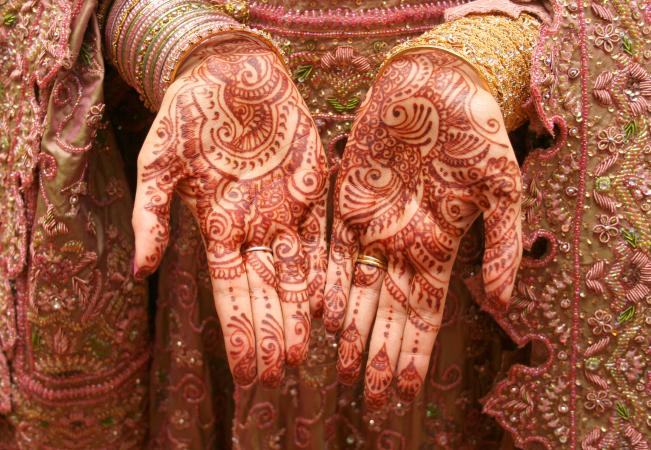FWP:
SETS
HENNA:
{18,4}
VOWS: {20,2}
For background see S. R. Faruqi's choices. This verse is NOT one of his choices; I thought it was interesting and have added it myself. For more on Ghalib's unpublished verses, see the discussion in {4,8x}.
The beloved gets the 'mischievousness'-- a word that emphasizes her playfulness and frivolity-- of her brilliant red henna from the blood of her 'murder of faithfulness'. But how long can it last? Just as henna fades from the hands, her decorative bloodstains fade over time. This fading also reflects the final death of faithfulness, so that no more such 'henna' is available (on the nature of henna, see {18,4}).
The playful, frivolous murderer and 'promise-breaker' then no longer has those fetching, bloody-red hands-- which the speaker loyally interprets as a sign of penitence or regret on her part. But is is the 'murder of faithfulness' that she regrets, or the loss of her special supply of henna?
Compare the most famous 'repentance' verse, the irresistible
{17,8}.

Asi:
The mischievousness of the color of henna from the blood/murder of faithfulness-- how long would it remain established? Finally, oh promise-breaker, you too will be compelled to repent.
== Asi, p. 55